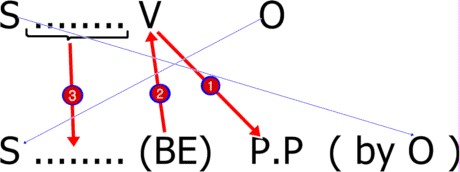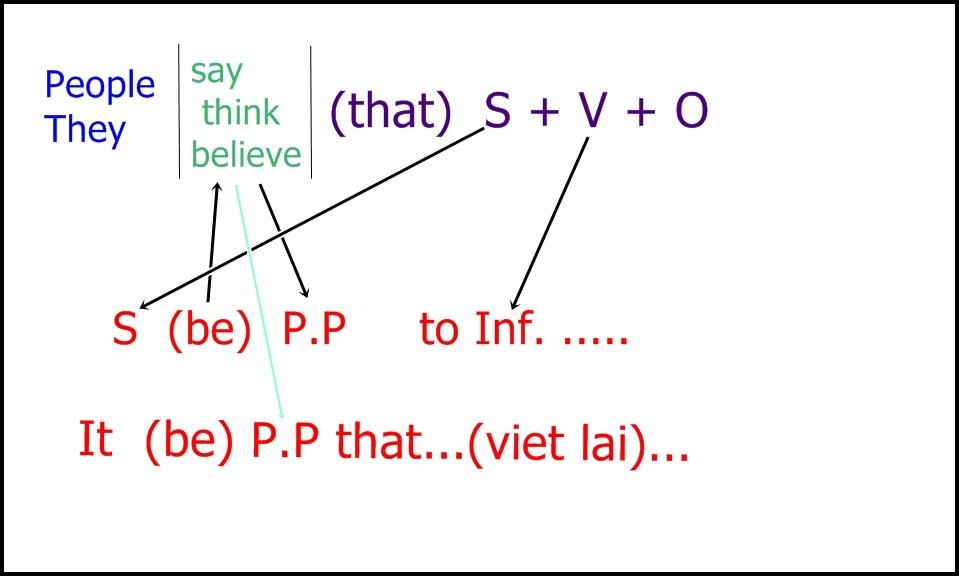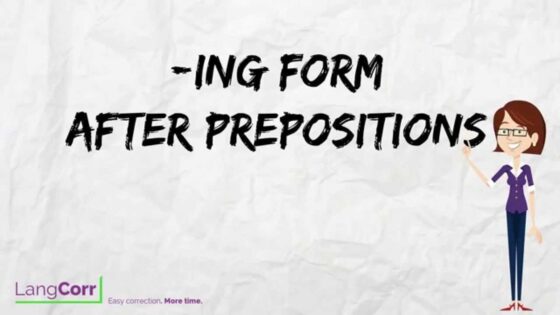Kiến thức trọng tâm ôn tiếng Anh -P4- thầy Cucku. Thầy cucku là một thầy giáo dạy tiếng Anh rất có tâm và học phí rẻ , thầy có nhận dạy online nhé các bạn

Nội dung chính:
Tính từ – trạng từ
Cấu tạo:
Thông thường tính từ thêm LY vào sẽ thành trạng từ.
Ví dụ: Careful (tính từ)
Carefully (trạng từ)
Tuy nhiên có những ngoại lệ sau đây:
- Tính từ và trạng từ có cùng hình thức mà không thêm LY.
Hard ———-à Hard
Late ———-à Late
Fast———-àFast
- Trạng từ có hình thức hoàn toàn khác với tính từ:
Good (Tốt, giỏi) ———-à Well
Lưu ý: Khi well mang nghĩa KHỎE thì nó là tính từ.
Cách dùng:
- Tính từ
Tính từ có thường có công thức và vị trí cố định:
- Trước danh từ, bổ nghĩa cho danh từ.
Ví dụ: A tall girl (Tính từ tall bỏ nghĩa cho danh từ girl)
Lưu ý: Với các đại từ phiếm chỉ như anything, anyone, nothing, no one, something, someone … thì tính từ sẽ đứng sau chứ không đứng trước như bình thường.
Ví dụ: Is there anything new?
- Sau to be và linking verb.
Ví dụ: She looks nice.
Các linking verb thường gặp là: Look (không có giới từ theo sau), feel, seem, get, become, turn, sound, taste, smell….
Lưu ý:
feel, sound, taste, smell: KHI CÓ TÚC TỪ => V thường
KHI KHÔNG CÓ TÚC TỪ => là linking V
- Trạng từ:
- Bổ nghĩa cho động từ.
Thông thường trạng từ đứng sau động từ, nếu có túc từ thì nó đứng sau túc từ. Lưu ý tuyệt đối không dùng trạng từ ở giữa động từ và túc từ trực tiếp.
He speaks fluently English. Sai
He speaks English fluently. Đúng
CÁC BƯỚC LÀM BÀI:
- Nhìn phía sau:
- Nếu có danh từ (kế bên) => tính từ
This is a …… film. ( tính từ)
- Nếu có động từ => trạng từ
I am …. eating (trạng từ)
- Nhìn TỪ TỪ ra phía trước
- Nếu gặp động từ => trạng từ
I am walking ….. ( trạng từ)
- Nếu gặp to be / linking verb => tính từ
He is ….. ( tính từ)
He looked ……. (Tính từ)
EXERCISES
Khi làm bài hãy tô màu từ mà nó bổ nghĩa.
- We dance the Tango …………………… (beautiful / beautifully)
- They planned their trip to France very …………………… (careful / carefully.)
- Jane painted the kitchen very …………………… (bad / badly)
- She speaks very …………………… (quiet / quietly)
- Turn the stereo down. It’s too …………………… (loud / loudly)
- He skipped…………………… down the road to school. (happy / happily)
- He drives too …………………… (fast / fastly)
- She knows the road…………………… (good / well)
- He plays the guitar…………………… (terrible / terribly)
- He is …………………… (careful/carefully)
- Andy doesn’t often work…………………… (hard / hardly)
- Sometimes our teacher arrives…………………… for class. (late / lately)
- She did it …………………… (bad/badly)
- We speak English …………………… (fluent/fluently).
- He drives …………………… (careful/carefully).
- She stood up and looked out the window…………… (direct / directly) at him.
- All goes…………………… (good / well), and after some time he feels relaxed enough to go for a walk.
- He joined dozens of others that sailed ……………… (lazy / lazily) toward the surface.
- Frankly, it is very …………………… (clever / cleverly) done.
- There are already rumours that publishers are feeling …………… (nervous / nervously).
- Children should be cared for by a …………… (normal / normally) and healthy family.
- We hoped this war could be resolved both…………………… (quick / quickly)
- All we wanted to do was to stand very …………………… (quiet / quietly).
- It was ………………… (nice / nicely) packaged and wrapped in pretty, recycled paper.
- A: I heard Daniel isn’t very …………………… (good/ well).
B: Well, he fell and hurt himself quite …………………… (bad/ badly).
- A: There was a …………………… (terrible/ terribly) accident on this road two days ago, wasn’t there?
B: Yes. Two people were killed and the driver of the car was …………………… (serious/seriously) injured.
- A: The weather was so …………………… (awful/ awfully) yesterday.
B: Yes, it was raining quite …………… (heavy/ heavily) so we stayed at home all day.
A: You haven’t cleaned the floor …………………… (proper/ properly). It’s still …………………… (dirty/ dirtily).
- A: Can you remember what happened?
B: I can’t remember …………………… (clear/ clearly). It all happened so …………………… (sudden/ suddenly).
- A: You didn’t look very …………………… (happy/ happily) last night.
Well, I was disappointed that I did so …………………… (bad/ badly) in the exam.
- A: Don’t go up that ladder. It doesn’t look …………………… (safe/ safely).
B: Don’t worry. I’ll climb …………………… (careful/ carefully).
- A: Did you go to Sally’s birthday party?
B: Yes. It was really a …………………… (cheerful/ cheerfully) party. Everybody at the party was …………………… (colorful/ colorfully) dressed.
- A: Why do you look so …………………… (nervous/ nervously)?
B: Oh, my! I’ve just got a mistake. I interrupted my boss while he was on the phone, and he looked at me …………………… (angry/ angrily) when I interrupted him.
- Mr. Cucku tasted the soup …………………. (careful/ carefully), but it still smelled ………………… (awful/ awfully)
- I have met him ………………… (recent / recently)
8
CÂU BỊ ĐỘNG (passive voice)
PHẦN 1: Công thức tổng quát:

Trước tiên ta chọn động từ passive (lưu ý không được chọn HAVE và GO). Sau đó tiến hành 3 bước chính sau đây:
1) Đổi động từ chính (đã chọn ở trên) thành P.P.
2) Thêm (BE) vào trước P.P, chia (BE) giống như động từ câu chủ động.
3) Giữa chủ từ và động từ có gì thì đem xuống hết.
Các bước phụ:
4) Lấy túc từ lên làm chủ từ :
Thông thường túc từ sẽ nằm ngay sau động từ, nếu phía sau động từ có nhiều chữ thì phải dịch nghĩa xem những chữ đó có liên quan nhau không, nếu có thì phải đem theo hết, nếu không có liên quan thì chỉ đem 1 chữ ra đầu mà thôi.
5) Đem chủ từ ra phía sau thêm by:
6) Các yếu tố còn lại khác thì đem xuống không thay đổi.
Ghi chú:
– Nếu có thời gian thì phải để thời gian cuối câu.
– Nếu chủ từ là: people, something, someone, they thì có thể bỏ đi (Riêng các đại từ: I, you, he… thì tùy theo câu, nếu thấy không cần thiết thì có thể bỏ)
– Nếu có no đầu câu thì làm như bình thường, xong đổi sang phủ định.
PHẦN 2: Những dạng đặc biệt
DẠNG 1: People say that….
Dạng này câu chủ động của nó có dạng sau:
People/ they + say/think/believe… + (that) + S + V + O
Dạng này có 2 cách đổi sang bị động như sau: (xem sơ đồ)

Cách 1:
– Bước 1: Lấy chủ từ mệnh đề sau đem ra đầu câu
– Bước 2: Thêm (be) vào: (be) chia giống động từ say/think….
-Bước 3: Lấy động từ say/think.. làm P.P để sau (be)
– Bước 4: Lấy động từ mệnh đề sau đổi thành to INF. rồi viết lại hết phần sau động từ này.
Cách 2:
– Bước 1: Dùng IT đầu câu
– Bước 2: Thêm (be) vào: (be) chia giống động từ say/think….
-Bước 3: Lấy động từ say/think.. làm P.P để sau (be)
– Bước 4: Viết lại từ chữ that đến hết câu.
DẠNG 2: Mẫu V O V
Là dạng 2 động từ cách nhau bởi 1 túc từ, ta gọi V thứ nhất là V1 và V thứ 2 là V2, đối với mẫu này ta phân làm các hình thức sau:
- a) Bình thường khi gặp mẫu VOV ta cứ việc chọn V1 làm bị động còn các phần sau cứ viết lại không thay đổi, tuy nhiên Nếu V2 làinf. thì khi đổi sang bị động phải đổi sang to inf. (Trừ 1 trừng hợp duy nhất không đổi là khi V1 là động từ LET)
Ví dụ: They made me go.
I was made to go.
They let me go.
=> I was let go. (Vẫn giữ nguyên go vì V1 là let)
Ghi nhớ: Các động từ dùng with thay cho by: Crowd, fill, cover
Ví dụ: Clouds cover the sky.
- The sky is covered with
DẠNG 3: CÂU CÓ TRỢ ĐỘNG TỪ DO/ DOES / DID
Làm bình thường, xong thay động từ to be vào chỗ do/does/did (be chia theo thì hiện tại hay quá khứ tùy theo do/does/did)
EXERCISES
- Bài tập luyện công thức:
- Lan types the letters.
…………………………………………………………
- Lan typed the letters.
…………………………………………………………
- Lan was typing the letters.
…………………………………………………………
- Lan will type the letters.
…………………………………………………………
- Lan can type the letters.
…………………………………………………………
- Lan has typed the letters.
…………………………………………………………
- Lan had typed the letters.
…………………………………………………………
- Lan had been typing the letters.
…………………………………………………………
- Lan is typing the letters.
…………………………………………………………
- Lan will be typing the letters.
…………………………………………………………
- Lan is going to type the letters.
…………………………………………………………
- Lan will have typed the letters.
…………………………………………………………
- Lan has been typing the letters.
…………………………………………………………
- Lan must be typing the letters.
…………………………………………………………
- Lan should have typed the letters.
…………………………………………………………
- Lan would have been typing the letters.
…………………………………………………………
- Lan must have typed the letters.
…………………………………………………………
- Lan must have been typing the letters.
…………………………………………………………
- Lan needn’t have typed the letters.
…………………………………………………………
- Lan used to type the letters.
…………………………………………………………
- Dạng câu “people say that…” ( làm 2 cách)
- People believe that he is from England.
…………………………………………………………
…………………………………………………………
- They think that he can do it.
…………………………………………………………
…………………………………………………………
- They thought that the thief had stolen a big sum of money.
…………………………………………………………
…………………………………………………………
- People think that the cat has been killed by the dog.
…………………………………………………………
…………………………………………………………
- They think he will attend my wedding.
…………………………………………………………
…………………………………………………………
- They said that the house was built 2,000 years ago.
…………………………………………………………
…………………………………………………………
- People believe that the company is losing a lot of money.
…………………………………………………………
…………………………………………………………
- People say that four men have been arrested in a SWAT team
…………………………………………………………
…………………………………………………………
- They believe the president has been taking his case for the plan.
…………………………………………………………
…………………………………………………………
- They say that the only thing that’s stopping this plan is politics.
…………………………………………………………
…………………………………………………………
III. Dạng V.O.V
- Lan asked me to go out.
…………………………………………………………
- Lan will order him to take it.
…………………………………………………………
- Lan saw the dog run there.
…………………………………………………………
- Lan made him clean the floor.
…………………………………………………………
- Lan lets the cat go out.
…………………………………………………………
- Lan begs people to give her some gifts.
…………………………………………………………
- Lan heard me calling her a bad girl.
…………………………………………………………
- Lan is going to make her friend buy a pen.
…………………………………………………………
- Lan noticed a rat running under the bed.
…………………………………………………………
- Lan caught them laughing at her.
…………………………………………………………
- BÀI TẬP TỔNG HỢP
- The teacher asked us to keep silent.
- Lan’s mother lets her go out with her boyfriend.
- Phuong Anh is going to make Danny buy her a new computer.
- They don’t take it.
- We didn’t buy this house.
- Mary can’t do this.
- My mother doesn’t cook the meal.
- The cat doesn’t kill the rat, but the rat has killed the cat.
- People are not used to speaking English in Vietnam.
- Tom didn’t paint the house yesterday.
- We didn’t see the accident.
- The writer didn’t write this novel.
- Nothing prevented Phuong Anh from eating noodles.
- Camtien found the exercises difficult.
- They must write to Lan
- He will look at me at the station at 3 a.m
- People have been waiting for him for 10 days.
- Spams covered the forum.
- Everyone in group 1 crowded the narrow class.
- We can’t make tea with salty water.
- Tom has taken away some of my books.
- They have to paint the window of the house.
- The thief broke the window.
- No one believes this story.
- Do they teach English here?
- The manager didn’t phone his secretary this morning.
- They find the new project worthless.
- Tom ordered this train ticket for his sister.
- You didn’t show me any special cameras.
- The shop assistant handed these bags to the customer
- We expect our children not to talk during the meal.
- We are going to hold a party next week.
- They had tested him before he went out.
- I have my mother make my shirt.
- They have done this work.
- Did your mother cook the meal?
- They don’t take the book.
- People said that he was nice to his friends. (làm 2 cách)
- People said that he had been nice to his friends (làm 2 cách)
- We heard him go out last night










